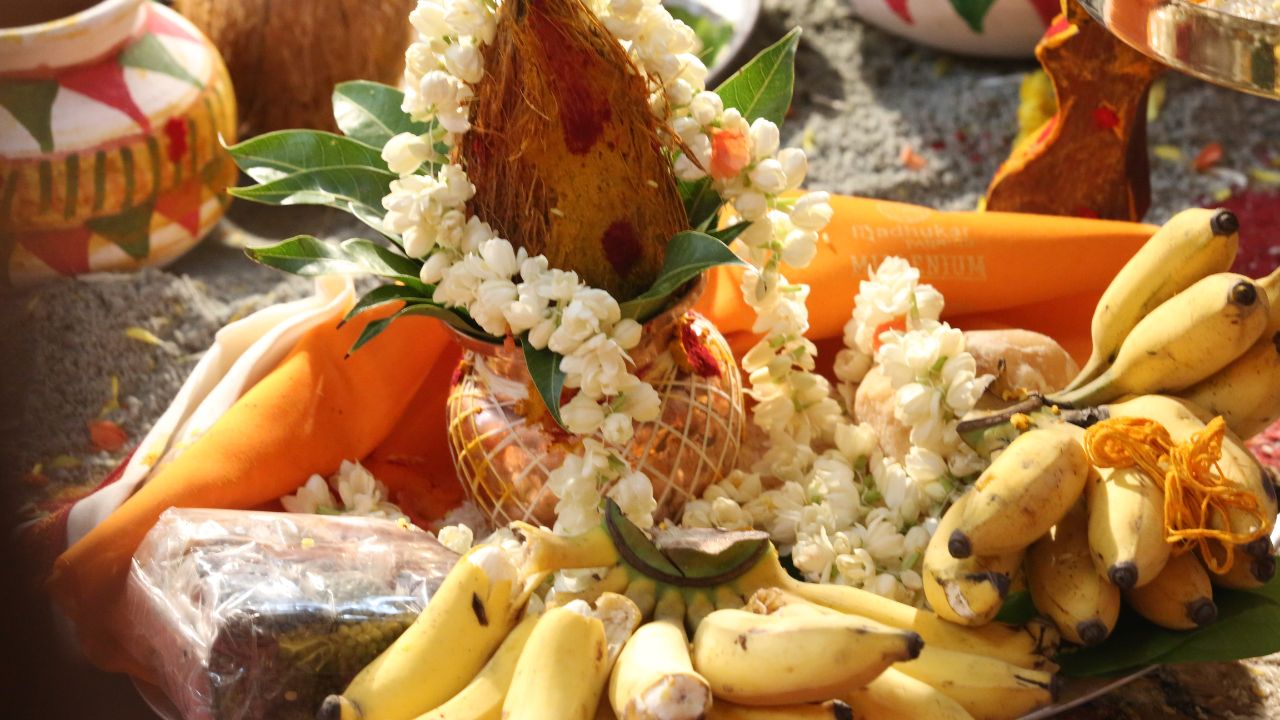Tamil wedding

Tamil weddings are steeped in tradition and are known for their elaborate rituals and customs. Here are some of the key features of a traditional Tamil wedding:
- Panda Kaal Muhurtham: This is the engagement ceremony, where the families of the bride and groom exchange gifts and formalize the engagement.
- Nichayathartham: This is a ceremony where the families of the bride and groom exchange formal invitations for the wedding.
- Pre-Wedding Rituals: These include the Nitchayathambula and the Maalai Maatral, where the bride and groom exchange garlands and gifts.
- Kalyanam: This is the wedding ceremony itself, which can take place over one or more days. It typically includes a series of rituals, such as the Kasi Yatra, where the groom pretends to leave for Kashi (a holy city) and is brought back by the bride’s family, and the Kanyadaanam, where the bride’s father gives her hand in marriage to the groom.
- Mangala Snaanam: This is a ritual bath taken by the bride and groom separately on the morning of the wedding day.
- Oonjal: This is a ceremony where the bride and groom sit on a swing and are blessed by their elders.
- Kanyadaanam: This is the moment when the bride’s father gives her hand in marriage to the groom, symbolizing the transfer of responsibility for the bride from her father to her husband.
- Muhurtham: This is the actual moment when the bride and groom are declared married.
- Saptapadi: This is a ritual where the bride and groom take seven vows, while walking around the sacred fire.
- Grihapravesam: This is the ceremony where the bride is welcomed into the groom’s home, and the couple takes their first steps together as a married couple.
Tamil weddings are known for their rich and colorful attire, with the bride and groom typically dressed in traditional silk clothing. The ceremonies are accompanied by music, dance, and elaborate feasts, and the emphasis is on family and community, with many customs designed to bring the families of the bride and groom together.
Specific Content Keywords : Kalyanam (Tamil word for wedding/marriage),Maapillai (groom),Ponnu (bride),Nichayathartham (engagement ceremony),Sumangali Prarthanai (auspicious ritual involving married women),Nischayathambulam (exchange of gifts between families),Mehndi/Maruthani (henna application),Kashi Yatra (mock pilgrimage undertaken by the groom),Pallikoodam (matrimonial platform),Oonjal (swing ceremony),Kanyadaanam (giving away the bride by her parents),Mangalsutra Thiruttal (tying of the sacred thread),Maangalyam (mangalsutra),Metti (toe rings),Sadangu (exchange of gifts and jewelry),Groom’s Veshti and Angavastram (traditional attire),Bride’s Kanjivaram saree (traditional attire),Muhurtham (auspicious wedding time),Thaali (sacred thread),Pudavai (bride’s silk saree),Jeelakarra Bellam (sweet mixture ritual),Koorai (bride’s traditional white saree),Varisai (gifts and dowry),Nalangu (post-wedding fun games),Vetrilai Paaku (betel leaves and nuts exchange),Saptapadi (seven steps around the sacred fire),Agni Pradakshina (circumambulation around the sacred fire),Akshata (rice offerings),Arundhati Nakshatram (viewing of a specific star),Arathi (waving of lamps),Paaladaanam (offering of milk),Kattusadham (traditional feast),Viratham (fasting by the couple),Nadaswaram and Thavil (traditional music instruments),Kolam (traditional floor art),Varmala (exchange of garlands),Sollukattu (verbal agreement during the ceremony),Nalangu Pattu (folk songs during the post-wedding games),Varapooja (worship of the groom as a deity),Samaaradanai (sending off the couple with gifts).

